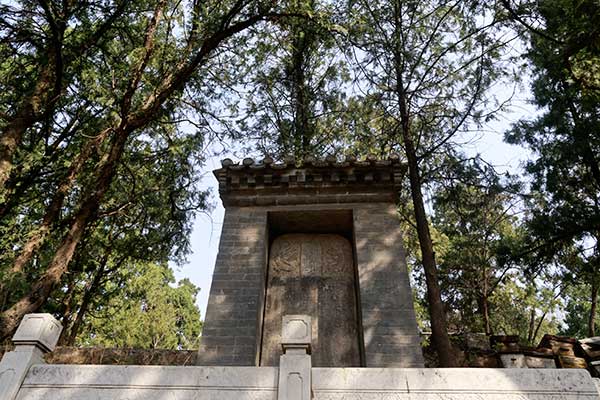 |
|
The Tomb of Li Tong (1389-1453), a powerful Ming Dynasty eunuch who commissioned and partly funded the construction of the Fahai Temple.[Photo by Feng Yongbin/China Daily]
|
Whether the friendship was minted as a result of mutual fondness or political convenience will forever remain a mystery. But they did have a faith, Buddhism, in common, something they also shared with successive Ming rulers. "Zheng He and Li Tong even bore the same religious name, fushan, meaning benevolence and kindness," Zheng Zihai says.
The imperial sanction gave Buddhism a huge following during the Ming period. And it became a trend among powerful eunuchs, who had no blood offspring to pass their fortunes to, to build temples. For childless eunuchs these edifices could also function as ancestral halls, where they were worshipped by people who had come on a pilgrimage to worship Buddha.
Zheng He died in April, 1433, aged 62, on the return leg of his final and seventh voyage. Some historians believe ashes of his bones were carried back to his homeland when the fleet reached the Chinese coast in July that year. Emperor Xuande, the Ming emperor of the day, ordered Zheng He's grand burial on a mountain slope in Nanjing. Zheng Zihai, who has done extensive research into the circumstances surrounding his ancestor's burial, says Li was responsible for the construction of a temple tower in Zheng He's memory.

